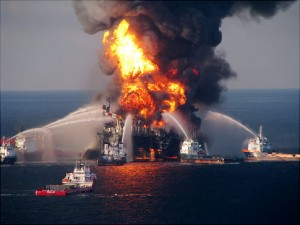
The Florida Department of Environmental Protection expects to have a list of desired restoration and conservation projects in place this summer for its share of the money from the BP oil spill disaster.
When the federal pipeline for the money to reach the state and local governments will be turned on remains unknown.
The state must wait for the U.S. Treasury to establish a list of regulations on how the Restore Act and other money from BP and Transocean settlements are distributed, said Mimi Drew, special advisor to DEP Secretary Herschel Vinyard.
“We’re reading the law, but we don’t have the rules,” Drew said.
The money is separate from the more than $1.7 billion that the BP-backed claims paying agency has paid out since last summer, of which about $332 million has gone to individuals and businesses in Florida.
The state continues to see tar balls wash ashore on Panhandle beaches and recorded a drop in Gulf fishing. There also was a decline in beach tourism, with a drop in reservations from the April 2010 disaster.
State officials have been holding listening sessions along the Gulf Coast to get local input for conservation and restoration projects. Public meetings on the plan will be scheduled later this spring.
“Right now we’re just talking about the kind of projects we’ll be funding, but we hope to have a draft plan in about a month or two,” Drew said after appearing Monday before the Senate Agriculture Committee.
Through the Restore Act, the state expects Florida counties will receive $56 million, with the governor getting to direct a share of $240 million heading to the Gulf Coast Ecosystem Restoration Council.
As part of a $1 billion agreement signed by the five state National Resource Damage Assessment Project Trustees and BP in April 2011, $100 million was designated to Florida.
So far, the state has been able to use $11.4 million for four boat ramps and a dune restoration project in Escambia County and a pair of coastal conservation projects — nesting bird and sea turtle habitat – along the Panhandle.
“We are concentrating on trying to restore what we call the loss of human use,” Drew said.
“They have to have a direct connection to the spill. You have to prove that the project offsets the damage from the spill.”
by Jim Turner


